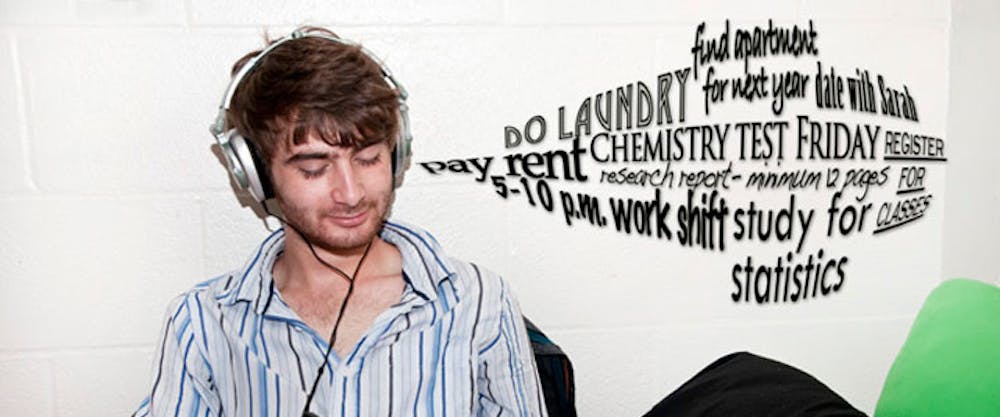When Beau Muniz walks around the UF campus, he’s almost never seen without his headphones.
Muniz, a UF mechanical engineering sophomore, is like many students in that he listens to music often and uses it to help him relax.
“I usually just listen to music to enjoy it,” Muniz said, “but sometimes music is the only thing that can really calm me down if I’m mad about something.”
As it turns out, Muniz may have stumbled naturally onto something more effective than he realizes.
A recent study conducted at the Osaka University Graduate School of Medicine in Japan indicates that listening to music or comedy could do more than release stress or anxiety — it actually could help people on a physical level.
Led by researcher Eri Eguchi, the study found that subjects who participated in bimonthly group sessions of listening to music or comedy saw their blood pressure reduce significantly.
Those who participated in these sessions, which consisted of an hour of listening to music or comedy every two weeks, saw their systolic blood pressure drop by an average of five to six points.
Michael Miller, M.D., is the director of preventive cardiology at the University of Maryland Medical Center. According to Miller, that drop in blood pressure could be compared to a similar drop produced by losing 10 pounds, adopting a low-salt diet or taking medication to lower blood pressure.
Miller said that although the demonstrated drop is somewhat modest, it could help lower the risk of death from heart disease or stroke by 5 to 15 percent.
Eguchi said it isn’t clear exactly how music and laughter can help lower blood pressure, but he is confident in the study’s findings.
In contrast to the results from the groups that received bimonthly treatment, a control group that got no treatment reported no sign of lower blood pressure.
“I think there’s definitely a physiological effect going on, some sort of mind-heart connection,” Miller told CNN Health.
But Miller cautioned against overextending the study’s findings, saying he wouldn’t recommend replacing medication with listening to music.
However, he said, “It could increase your likelihood of going off medication or reducing the dosage.”
So, just how much should students read into these findings? One thing that’s notable is the study subjects’ characteristics: men and women between 40 and 74 years of age.
Jayne Standley, a professor of music therapy at Florida State University whose focus is medical music therapy, said that although a wealth of research shows that listening to music can affect people physically, this study still stands out.
“Music can affect a number of physiological levels,” Standley said. “It can reduce heart rate and help calm anxiety. But this study is unusual because it’s with blood pressure, which usually doesn’t have a response to music.”
Standley said the study was something that should interest music lovers of any age.
“People who love music can use it to their advantage no matter how old they are. It just has to be the individual’s preferred music.”
Clifford Madsen is a colleague of Standley’s at FSU. He focuses on perception cognition in music and has years of experience researching physiological and psychological effects of music on people.
“We used to think there was a specific music that would make people physiologically excited and other music that would calm them down,” Madsen said. “What we’ve found after a lot of research is that it isn’t in the music but rather the association in the music.”
However, Madsen cautioned against taking the results of the blood-pressure study too seriously because there always is variation when measuring physiological reactions.
But he said there is one way young people can get results.
“Something that we’ve researched at some length is that you’re not going to get any of the effects if you’re multitasking,” Madsen said. “You’ve got to clear out your head and just go with the sounds that are coming in. Background music won’t work the same.”






